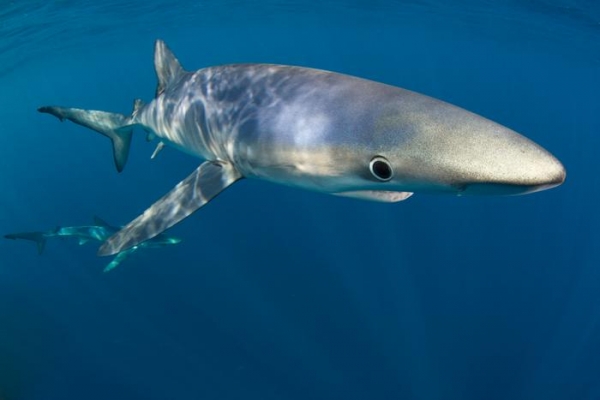A study of 12 species of highly migratory fish predators—including sharks, tuna, and billfish such as marlin and swordfish—finds that most of them will encounter widespread losses of suitable habitat and redistribution from current habitats in the Northwest Atlantic Ocean (NWA) and the Gulf of Mexico (GOM) by 2100.
A study of 12 species of highly migratory fish predators—including sharks, tuna, and billfish such as marlin and swordfish—finds that most of them will encounter widespread losses of suitable habitat and redistribution from current habitats in the Northwest Atlantic Ocean (NWA) and the Gulf of Mexico (GOM) by 2100. These areas are among the fastest warming ocean regions and are projected to increase between 1-6°C (+1-10°F) by the end of the century, a sign of climate-driven changes in marine ecosystems.
In some cases, these iconic, and economically and ecologically important species, could lose upwards of 70% of suitable habitat by the end of the century, and in most cases, the impacts of these climate-induced changes are already observable.
“The ongoing and projected effects of climate change highlight the urgent need to adaptively and proactively manage dynamic marine ecosystems,” according to the study, “Widespread habitat loss and redistribution of marine top predators in a changing ocean,” published in the journal Science Advances.
Read more at Woods Hole Oceanographic Institution
Image: A newly published study from Woods Hole Oceanographic Institution, San Diego State University, and NOAA Fisheries, shows that some species of highly migratory fish predators – including sharks, tuna, and billfish, could lose upwards of 70% of suitable habitat by the end of the century, which is when climate driven changes in the ocean are projected to increase between 1-6°C (+1-10°F) in sea surface temperatures. The study identified the Northwest Atlantic Ocean and the Gulf of Mexico, which are among the fastest warming ocean regions, as predicted hotspots of multi-species habitat loss. (Credit: Photo: Blue Shark, ©Tom Burns)






